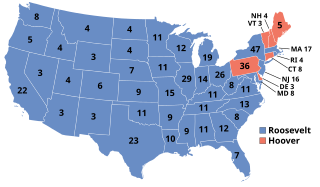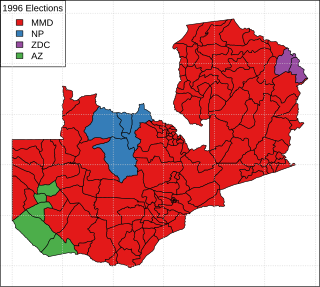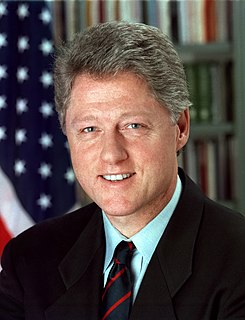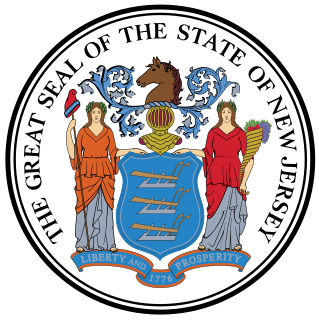
The United States presidential election of 1932 was the thirty-seventh quadrennial presidential election, held on Tuesday, November 8, 1932. The election took place against the backdrop of the Great Depression. Incumbent Republican President Herbert Hoover was defeated in a landslide by Democrat Franklin D. Roosevelt, the Governor of New York. The election marked the effective end of the Fourth Party System, which had been dominated by Republicans.

The United States Electoral College is a body of electors established by the United States Constitution, constituted every four years for the sole purpose of electing the president and vice president of the United States. The Electoral College consists of 538 electors, and an absolute majority of 270 electoral votes is required to win an election. Pursuant to Article II, Section 1, Clause 2, the legislature of each state determines the manner by which its electors are chosen. Each state's number of electors is equal to the combined total of the state's membership in the Senate and House of Representatives; currently there are 100 senators and 435 representatives. Additionally, the Twenty-third Amendment provides that the District of Columbia (D.C.) is entitled to a number of electors no greater than that of the least populous state.

A presidential system is a democratic and republican system of government where a head of government leads an executive branch that is separate from the legislative branch. This head of government is in most cases also the head of state, which is called president.

The People's Democratic Party (PDP) is a major contemporary political party in Nigeria. Its policies generally lie towards the centre-right of the political spectrum. It won every Presidential election between 1999 and 2011, and was until the 2015 elections, the governing party in the Fourth Republic although in some cases, amid a few controversial electoral circumstances. Currently, PDP controls 14 states out of 36 states in Nigeria.

Elections in Benin take place within the framework of a multi-party democracy and a presidential system. Both the President and the National Assembly are directly elected by voters, with elections organised by the Autonomous National Electoral Commission (CENA).

In United States presidential elections, a faithless elector is a member of the United States Electoral College who does not vote for the presidential or vice presidential candidate for whom they had pledged to vote. That is, they break faith with the candidate they were pledged to and vote for another candidate, or fail to vote. A pledged elector is only considered a faithless elector by breaking their pledge; unpledged electors have no pledge to break.

The 2008 United States elections were held on November 4. The result was a significant victory for the Democratic Party on the national level, as they increased majorities in both houses of Congress and won the Presidency. Democratic Senator Barack Obama of Illinois defeated Republican Senator John McCain of Arizona in the presidential election. Riding Obama's coattails, the Democrats also picked up net gains of 8 Senate seats and 21 House seats.

The number of elections in Iowa varies from year to year. Presidential elections are held every four years. Since 1972, Iowa has been the first state to vote in presidential primaries, with their caucuses. As with presidential elections, gubernatorial elections are held every four years - but are staggered such that they are held on general elections independently of the presidential election. Members of the Iowa Senate are elected every four years, with half of the Senate elected at each general election; all members of the Iowa House of Representatives are elected every two years. Additionally, elections for various government officials, judicial retention elections, and elections on referenda occur as part of various elections in Iowa.

The 1992 United States presidential election in California took place on November 3, 1992, and was part of the 1992 United States presidential election. Voters chose 54 representatives, or electors to the Electoral College, who voted for president and vice president. This was the first time that California had voted for a Democratic presidential nominee since Lyndon B. Johnson in the 1964 election, and Clinton's win in this state reflected its changed status from reliably Republican to decisively Democratic to the present. California maintains the largest number of electoral votes in the Electoral College.

The 2012 United States presidential election was the 57th quadrennial American presidential election, held on Tuesday, November 6, 2012. The Democratic nominee, President Barack Obama, and his running mate, Vice President Joe Biden, were elected to a second term. They defeated the Republican ticket of former Governor Mitt Romney of Massachusetts and Representative Paul Ryan of Wisconsin.

The 2016 United States presidential election was the 58th quadrennial American presidential election, held on Tuesday, November 8, 2016. The Republican ticket of businessman Donald Trump and Indiana Governor Mike Pence defeated the Democratic ticket of former Secretary of State Hillary Clinton and U.S. Senator from Virginia Tim Kaine, despite losing the popular vote. Trump took office as the 45th President, and Pence as the 48th Vice President, on January 20, 2017.
In the United States Senate elections of 1828 and 1829, the Jacksonian coalition, despite its leader's victory in the presidential election, lost a seat in the Senate to the opposing Anti-Jacksonian coalition.

General elections were held in Zambia on 18 November 1996 to elect a President and National Assembly. They were boycotted by the main opposition party, the United National Independence Party, together with five other allied parties, following changes to the constitution which they failed to have reversed following a court challenge. The changes imposed a two-term limit on the presidency, required presidential candidates to be born to two Zambian citizens by birth or descent, and required National Assembly candidates to give up their chieftaincy. UNIP believed these changes were specifically aimed at their longtime leader, Kenneth Kaunda, whose parents were Malawian and had previously served as the country's first president from 1964 to 1991. The changes would have also excluded UNIP's vice president, a chief. Subsequently, the ruling Movement for Multi-Party Democracy won a comfortable victory in both elections, taking 131 of the 150 elected seats in the National Assembly, and its candidate, Frederick Chiluba, winning 73% of the vote in the presidential election.

The 1956 United States elections was held on Tuesday, November 6, 1956. The election saw no major change in power as the Republicans defended the presidency and the Democrats retained control of Congress.

The 1988 United States elections was held on November 8, and elected the members of the 101st United States Congress. The Republican Party retained the presidency, while the Democratic Party retained control of Congress.

The 1992 United States presidential election in Vermont took place on November 3, 1992, as part of the 1992 United States presidential election. Voters chose three representatives, or electors to the Electoral College, who voted for president and vice president.

New Jersey kept its delegation at six seats but changed from electing its Representatives on a statewide general ticket to using three plural districts of two seats each. These districts were used only for the 1812 election, and the state returned to using a single at-large district in 1814. This was only the second time that New Jersey used districts.

The 2020 United States elections will be held on Tuesday, November 3, 2020. All 435 seats in the United States House of Representatives, 34 of the 100 seats in the United States Senate, and the office of President of the United States will be contested. Thirteen state and territorial governorships, as well as numerous other state and local elections, will also be contested.

Servant of the People is a Ukrainian political party which was officially registered at the Ministry of Justice on 31 March 2018. The party has the same name as the Ukrainian TV hit Servant of the People made by the TV production company Kvartal 95 (Квартал-95). The party's leader is Kvartal 95 lawyer Ivan Bakanov. At the time Kvartal 95 created the party, they claimed it was important to do so to prevent others from stealing the name of the eponymous series for "cynical political purposes".



















